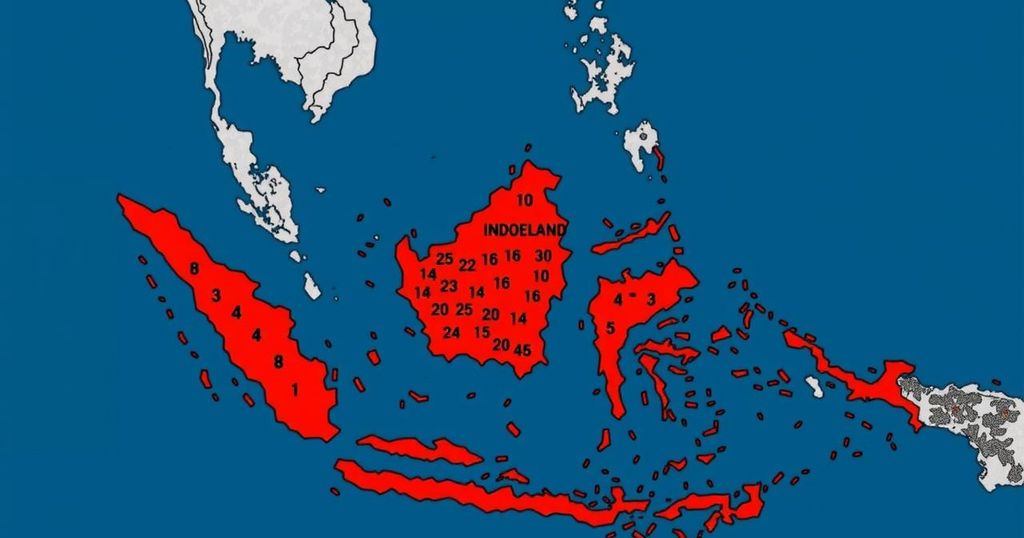Acknowledgment and Reflection on Indonesia’s Independence and Dutch Colonial Legacy
On June 14, 2023, Dutch Prime Minister Mark Rutte acknowledged August 17, 1945, as the official date of Indonesia’s independence, marking a significant change in Dutch recognition of its colonial past. This statement comes after decades of denial surrounding the violence of the colonial war, emphasizing the ongoing struggle for acknowledgment of historical injustices. Personal reflections on the author’s family history during World War II deepen the discourse, calling for greater reconciliation and understanding of colonial legacies.
On May 29, 2023, I visited the Proclamation Monument in Jakarta with my granddaughter and son-in-law, standing before the statues of Sukarno and Hatta, who declared Indonesia’s independence on August 17, 1945. This event marks a significant milestone as Dutch Prime Minister Mark Rutte announced on June 14, 2023, that this date would now be recognized as the official birthdate of the Republic of Indonesia, thereby acknowledging the end of Dutch colonial rule. For decades, the Netherlands maintained that independence did not occur until December 27, 1949, when sovereignty was transferred, disregarding the war waged against Indonesians between 1945 and 1949. This acknowledgment represents a pivotal shift in Dutch governmental perspective, contrasting sharply with the stance of the 29 previous governments, all of which refused to honor Indonesia’s Independence Day. Conversely, while the government recognizes this historic date, it simultaneously dodges accountability for the violence inflicted upon the Indonesian people by declaring that these acts cannot be classified as war crimes legally, creating an air of hypocrisy surrounding their proclamation. The reluctance of the Dutch government to confront the reality of its colonial past is also reflected in the annual Day of Remembrance in Amsterdam. Despite calls to honor all victims, including the approximately 100,000 Indonesians who died during the conflict, only Dutch casualties were commemorated, further emphasizing the ongoing struggle to fully acknowledge historical injustices. Reflecting personally, my visit to the monument was influenced by research undertaken by my brother, leading us to discover that our family was in proximity to the proclamation event while interned by the Japanese during World War II. This discovery compelled me to explore the profound implications of our past, highlighting the importance of acknowledging and unearthing historical truths that have long been suppressed. In the context of this delayed recognition, I recalled the insights of Louis Couperus, a notable Dutch writer, who captured the complex dynamics of colonization and the unyielding spirit of the Indonesian people. His reflections remind us that beneath the facade of colonial rule, the dream of independence was very much alive among those oppressed. Couperus foresaw that the subjugation would not endure, an insight that resonates powerfully with Indonesia’s eventual triumph over colonialism. Thus, while the Dutch government’s recent statement marks a historical breakthrough, it remains crucial to confront the uncomfortable truths surrounding the past, embrace a broader recognition of all victims, and foster understanding and reconciliation in the ethos surrounding colonial legacy.
The article discusses the historical context of Dutch colonial rule in Indonesia and the long-standing denial by the Netherlands regarding the country’s independence. The recognition of August 17, 1945, as the official date of Indonesia’s independence by Prime Minister Mark Rutte signifies a critical turning point in Dutch national consciousness. However, the government continues to maintain that the violent actions during the ensuing conflict do not constitute war crimes, reflecting an ongoing reluctance to take full responsibility for its colonial history. This context is further enriched by the author’s personal reflections and insights from renowned Dutch writer Louis Couperus, establishing a connection between the past colonial atmosphere and the present-day discourse.
The recent acknowledgment by the Dutch government regarding Indonesia’s independence marks a monumental shift in recognizing historical truths that had been systematically denied for decades. Nevertheless, the government’s attempt to absolve itself of accountability for violence during the colonial war reveals a deeper layer of reluctance to fully reckon with its past. It is imperative that both the Dutch and Indonesian societies embrace this opportunity to foster genuine dialogue and comprehension regarding the implications of colonial history, seeking to honor the memory of all victims involved while breaking the cycle of historical amnesia.
Original Source: www.juancole.com




Post Comment